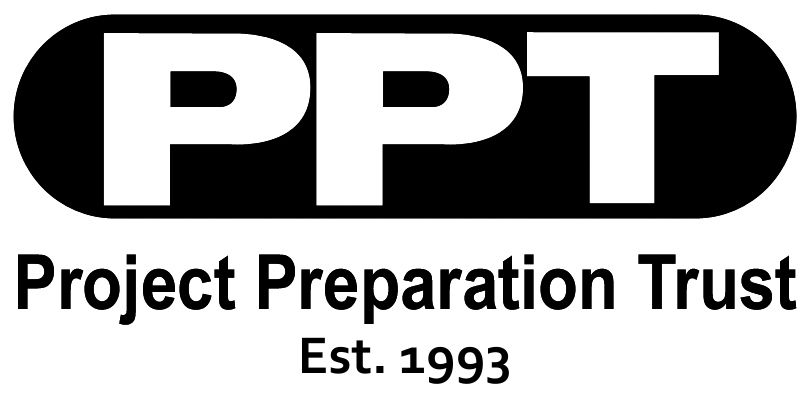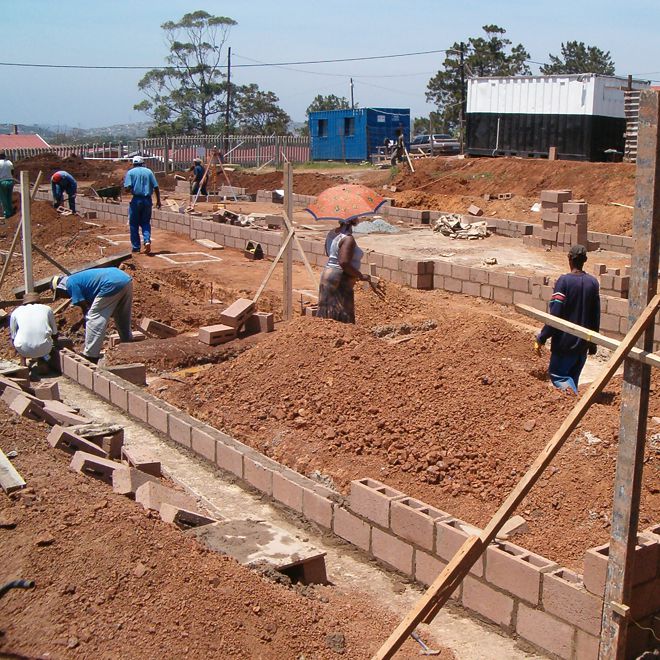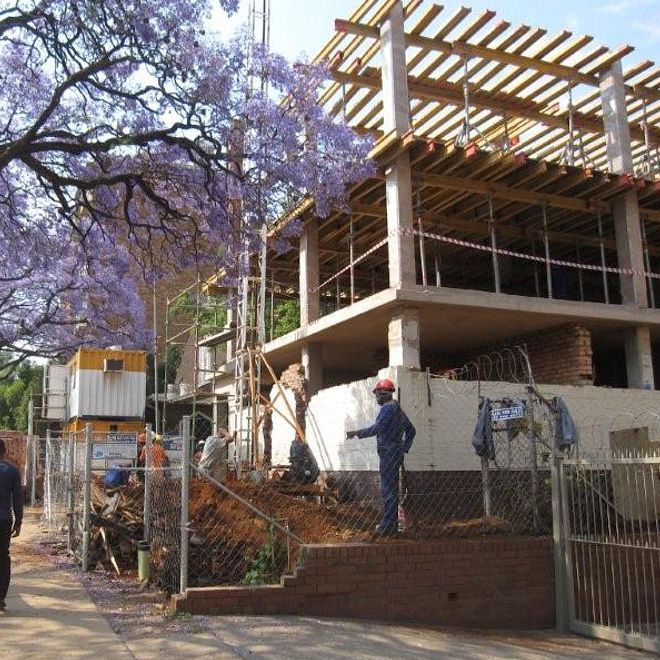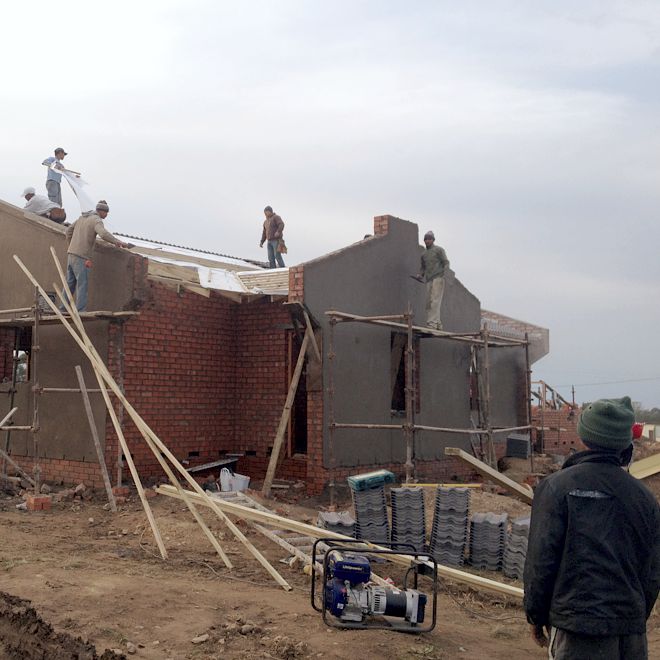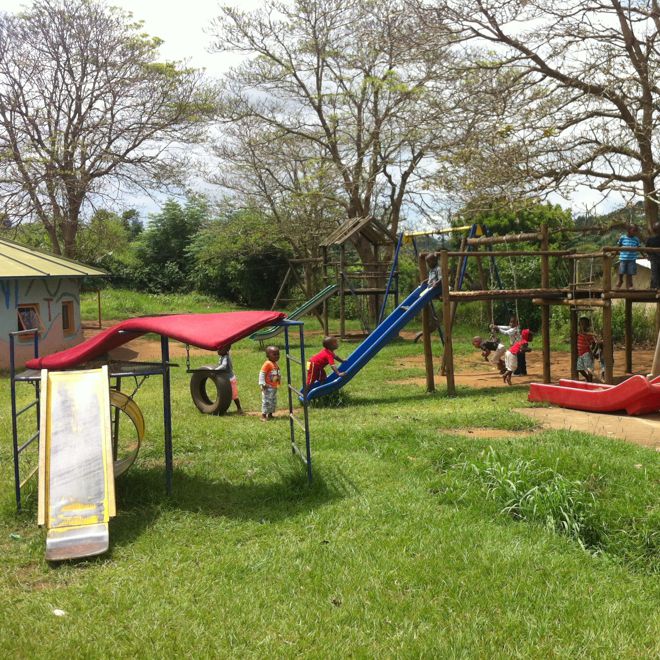Special Needs Group Housing
Special Needs Housing has been a major focus for PPT since 2002. PPT has played a significant role at both the project and policy levels over this period. This programme focuses on the provision of group housing (shelter and associated care) for a range of special needs beneficiaries such as orphans and vulnerable children, the chronically ill, those with disabilities and victims of domestic abuse.
PPT has played an extensive role in advocating for and developing a new national policy for addressing special housing needs and developing related implementation guidelines. This drew extensively on the SNH preparation methodologies and scopes of work developed by PPT dating back to 2002.
PPT has also assisted large numbers of welfare organisations (NPOs) at grassroots level to prepare projects and access capital funding for facilities in the form of special housing subsidies (for acquisitions, new builds or renovations). Projects have historically been located mainly in KwaZulu Natal, Eastern Cape and Gauteng but with some involvement in the Western Cape.
|
CAPITAL FUNDING APPROVED |
|
| Rand value: | 60 958 452 |
| Number of projects: | 39 |
| Number of households: | 976 |
|
PROJECTS UNDER PREPARATION |
|
| Rand value: | 62 837 759 |
| Number of projects: | 12 |
| Number of households: | 517 |
Special Housing Needs (as per the draft National Policy) refers to housing opportunities for persons who, for a variety of reasons, are unable to live independently in normal housing or require assistance in terms of a safe, supportive and protected living environment and who need some level of care or protection, be it on a permanent or temporary basis. These persons include, but are not limited to, orphans and vulnerable children, persons with disabilities, older persons, terminally ill persons, victims of domestic abuse, persons in transitional phases etc.
Click here for an explanation of the distinction between individual and group SNH.
NOTE: The terms Special Needs Housing as it is known by welfare organisations or Special Housing Needs, the term preferred by the Department of Human Settlements, are now often used interchangeably.
Special housing refers to the following categories of persons who have low incomes (as defined in the Housing Code) or have no incomes or are dependent on social grants:
- Orphans and vulnerable children (OVC’s);
- Older persons;
- Persons with physical disabilities
- Persons with intellectual and psycho social disabilities
- Victims of domestic abuse and similar crimes;
- The terminally ill and frail persons (including those infected by HIV/AIDS);
- The homeless or destitute or those living on the street (including children);
- Those receiving substance abuse rehabilitation services;
- Other vulnerable people such as victims of serious crime and victims of human trafficking.
Special Housing is therefore associated with safe shelter provided by an approved and registered NPO to low income persons who are vulnerable, in need of specialised care, resources or special facilities and equipment and/or requiring affordable housing within a safe and secure area. These persons are usually not able to live independently or need some level of care or protection, be it on a permanent or temporary basis.
A quick look at the 2011 census shows the extent of vulnerability experienced in SA - almost 3,6 million or one fifth (19,1%) of all children in South Africa, were orphaned; the total number of persons over the age of 60 years has increased by 35% to 3,9 million between 2002 and 2011 and it is estimated that this figure will grow to approximately 7 million by 2030; and a national disability prevalence rate of 7,5% (excluding children under 5 and those with psycho-social and neurological disabilities). The need for Special Needs Housing was also clearly illustrated with the recent catastrophes such as:
- Esidimeni with the tragic loss of lives of 94+ mentally ill persons in 2016 (Report by the Health Ombud);
- gender based violence of enormous proportions - Police Minister Bheki Cele reported one week into lockdown more than 87,000 cases; and
- the crisis of homelessness (estimated 200 000 in 2015) was emphasised during Covid-19 lockdown.
PPT supported the National Departments of Human Settlements (NDHS) and Social Development (NDSD) in the development of a new National Special Housing Needs Policy which was finalised in March 2015. [It is noted that the Policy is not yet approved. It is hoped that the Policy will be approved together with the related Implementation Guidelines early in 2021.] Civil Society stakeholders were also extensively consulted in developing the policy. The NDSD negotiated donor funding to be provided to PPT by the DG Murray Trust and the Anglo American Chairman’s Fund to assist enable PPT to provide the necessary support in developing the SHN policy, noting that PPT is regarded as the leading organisation involved in the preparation of special needs housing projects in South Africa having prepared large numbers of projects and having worked across multiple provinces.
The NDSD and NDHS established a SHN Project Steering Committee (PSC) comprising 36 members of which 13 were representative of various national NGOs representing the different special needs categories, 18 represented the same special needs categories in government and 5 additional members that included PPT, Treasury, etc.
The SNH programme is intended to provide capital grants to approved and registered NPOs for the acquisition and development of new facilities and the extension or upgrading/ refurbishment of existing buildings that will be occupied by qualifying persons with special housing needs and will require NPOs to develop and maintain the housing stock and facilities, must provide ongoing care services and must only allow qualifying persons to occupy the housing units.
The SHN PSC agreed on various standard typologies for different types of special needs facilities and the relaxation of spatial norms for these typologies to make it affordable and more manageable for NPOs. The PSC also agreed on the minimum and maximum number of beneficiaries that can be accommodated. Typical cost rates were determined and an automated grant calculator was developed for the upgrading and extension of existing facilities as well as for the development of new facilities. The grant will cover the following costs: land/ property, conveyancing, basic services, construction, P&Gs, fencing, professional fees, variation for extraordinary development conditions based on the DHS variation calculator. The policy also attends to the funding arrangements and processes.
Extensive stakeholder consultations took place throughout the process. PPT presented the draft SHN policy to various platforms e.g. National Disability Forum and the Older Persons National Forum.
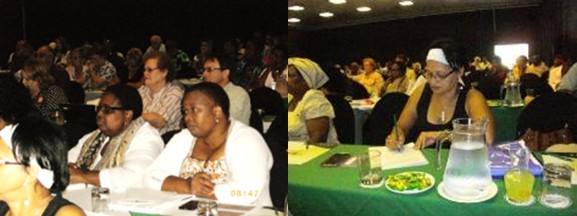
Presentation of SHN policy to Older Persons National Forum
PPT finally presented the draft SHN Policy to the Joint DHS/ DSD Research and Policy Task Team and various stakeholders e.g. state departments on national and provincial level, metros, civil society organisations, NPOs, beneficiaries, on 12 March 2015. The draft SHN policy was well received.

Presentation of SHN Policy to Joint Policy Task Team on 12 March 2015
The National Department of Human Settlements issued a tender for the preparation of the development of Special Housing Needs (SHN) Implementation Guidelines in 2018 which was awarded to PPT in 2019. PPT compiled the guidelines which include an outline of the programme, technical specifications, funding arrangements, the norms and standards for 33 typologies and a grant calculator for improvement and extensions of existing facilities and new builds, etc. The Guidelines were presented to the Joint DSD / DHS Policy Task team on 22 September 2020. The intention is that the Minister will the new Policy and Guidelines simultaneously to a Joint DHS/ DSD MINMEC for approval (hopefully early in 2021).
The process in terms of which an NPO can apply for and access capital funding can be summarised as follow:
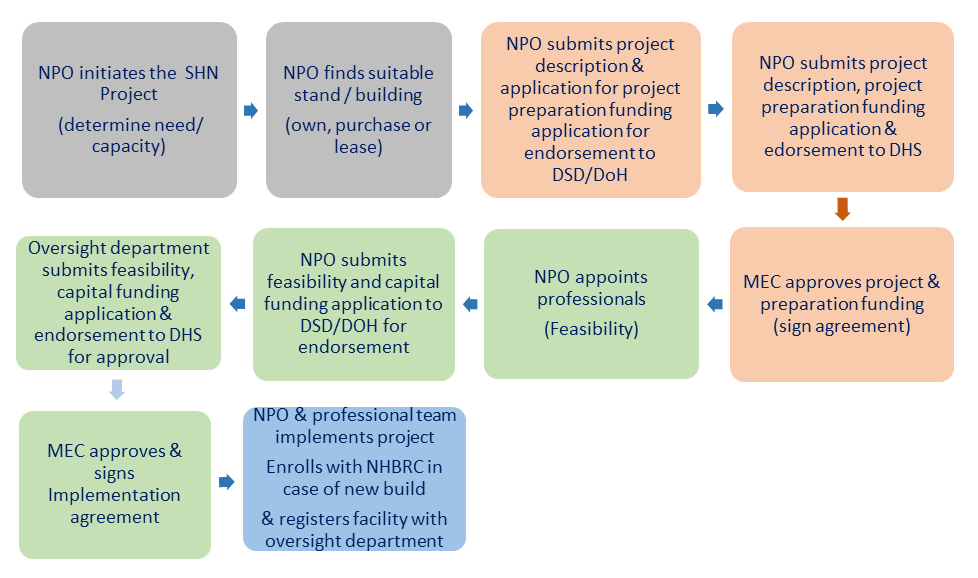
The draft SHN Policy is, 5 years after its development, still not approved by the Minister of Human Settlements.
The delay in approving the policy triggered a range of responses including:
- A full research brief taking more than a year by the S.A. Human Rights Commission (SAHC) in 2017;
- A subsequent SAHRC-hosted seminar with relevant stakeholders including the National Departments of Human Settlements, Social Development and Health (NDHS, NDSD, NDoH), 2017;
- A letter to the Minister and a presentation to the Human Settlements Parliamentary Portfolio committee by the SAHRC, 2017;
- Enquiries by the Public Protector and the UN on international platforms and more recently in December 2019 by the Commission for Gender Equality (CGE);
- A presentation by the GCE to the Human Settlements Portfolio Committee on the lack of progress with the approval of the SHN Policy on 31 July 2020 at which the NDHS agreed to provide feedback at the end of September 2020;
- Numerous letters / emails/ submissions to the Minister by NPOs as well as questions in Parliament regarding progress with the approval.
It is hoped that the process for finalising the approval by the Minister will occur early in 2021. For this to occur, the Policy will need to first be presented by the NDHS at a joint MINMEC for approval.
The NDHS and NDSD advised in September 2020 that they would be meeting Treasury on the issue of either adding funding or ring fencing a percentage of the Human Settlements Development Grant for the roll out of the SHN programme.
Once approved, the NDHS/ NDSD / NDoH will organise a joint national and provincial orientation and training for their staff and for NPOs (via ‘roadshows’) using the implementation guidelines prior to the implementation of the programme.
Welfare organisations (NPOs) have been attending to persons with special needs for decades and still are the main providers of accommodation / housing and related services. All facilities (except shelters for the homeless and housing for the elderly for independent living) are registered with the Departments of Social Development (DSD) or Health (DOH) in terms of legislation, regulations and policies.
Quote: Without a sense of caring, there can be no sense of community. Anthony J. D'Angelo
NPOs used to have access to capital funding provided by previous governments to upgrade, extend or put up new buildings to accommodate persons with special needs. Government funding came to a halt with the new dispensation in 1994. NPOs, ever since 1995, requested the then Department of Housing to assist them by developing a housing programme for people with special housing needs on a similar basis as government provided housing for able bodied persons earning less than R3500. NPOs do not have access to funding to upgrade their facilities to meet the require norms and standards or extend or put up new buildings to relieve over crowdedness or accommodate people on long waiting lists. All NPOs report that they continually have to turn desperate beneficiaries away, knowing full well that these people may end up in very poor and sometimes abusive environments with limited or no care. The need became ever more urgent with the withdrawal of international funding after 2010 and major changes implemented by domestic donors which are generally not keen to fund construction or upgrading of facilities and prefer to assist with programme funding.
As for operational funding - some of the services rendered are funded by the state in terms of a service level agreement with the oversight department, but it only covers a portion of the work. They, like all those not funded by the state, have to raise donor funding in order to run these facilities and services sustainably.
PPT played a leading role in advocating for the creation of a special housing programme aimed at assisting NPOs with housing subsidies for person with special needs.
2005
PPT in partnership with eThekwini Municipality made a submission to the National Department of Housing in July 2005 in order to assist in facilitating the establishment of national guidelines or a national policy for the provision of subsidies for Special Needs Housing (including HIV AIDS relief). This submission provided feedback to the then National Department of Housing in the form of a framework and guidelines based on practical, on-the-ground experience gained from numerous projects in eThekwini Municipality and greater KwaZulu-Natal. Click here to read the Framework for the Provision of Housing Subsidies for Special Needs Housing submitted by PPT and eThekwini Municipality to the National Department of Housing, 2005.
2008
PPT was part of the SNH Forum established in 2005 working under the auspices of the Social Housing Foundation that drafted a briefing document to the Minister in 2008. Click here to read the briefing document. The SNH Forum but which activities came to an end with the closing of the SH Foundation and the establishment of the Social Housing Regulatory Authority (SHRA).
2012
PPT assisted the Community Law Centre(CLC) and Centre for Disability Law and Policy (CDLP) with the preparation of a presentation to the DHS Parliamentary Portfolio Committee in April 2012 that resulted in a resolution that the NDHS should investigate and draft a policy for people with Special Needs.
2012
PPT was elected by participants at the national workshop, Cape Town in 2012 to serve on the SNH Task Team that interacted with the Western Cape DHS, made submissions to the DHS Portfolio Committee and other departments, and advocated the approval of subsidy allocation to NPOs to assist with the provisioning of housing for people with special needs.
2012
PPT obtained donor funding for two years from the DG Murray Trust to advocate the development of a national directive for the development of provincial SNH policies and to design and pilot special needs housing models focussing on older persons and abused women and children. Click here for more information on “Toward a more inclusive SNGH Programme in South Africa”, 2013.
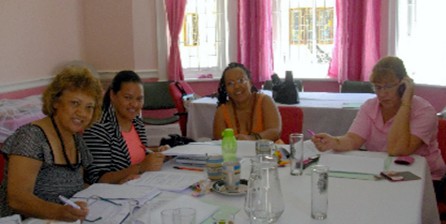
A meeting with the Women Shelter Movement in Cape Town, 2012.
2013
The CSO SNH Task Team facilitated the submission to the NHDS by 42 civil society organisations appealing for an enabling national directive for SNH in January 2013 which was copied to National Ministers of Health and Social Development. Click here to open the Joint CSO submission to the Ministers of Human Settlements.
2014
Advocacy processes by CSO in the Western Cape eventually lead to a submission by the WC DHS to the Human Settlements MINMEC in April 2013 motivating for the use of a variation of the institutional subsidy mechanism for purposes of SNH.
2013
The Department of Human Settlements (NDHS) was mandated by their MINMEC in 2013 to explore the issue of Special needs housing.
2014
NDSD and NDHS joined forces early 2014, formulated the Terms of Reference and appointed PPT to assist with the research and the formulation of the SHN Policy
2015
The Draft SHN Policy was circulated and presented to various stakeholders including the Joint DHS /DSD Research and Policy Task Team on 12 March 2015. The SHN Policy was welcomed and accepted by the participants.
PPT kept numerous NGOs and other stakeholders informed of progress or the lack thereof and attended various meetings including the SAHRC seminar with the DHS, DSD and NGOs and kept track of the letter to Minister, questions in parliament, attending meetings with NDHS and NDSD campaigning for the approval of the draft SHN policy.
Quote: Never believe that a few caring people can't change the world. For, indeed, that's all who ever have.” ― Margaret Mead, anthropologist
PPT has worked in 4 provinces on SNH projects namely KwaZulu-Natal, the Eastern Cape, Gauteng and the Western Cape. To date PPT prepared and submitted 53 SHN projects. Of these 39 SNH were approved and R60,9 million was leveraged in state housing subsidies and other donors for NPOs for 976 special needs beneficiaries. PPT await approvals for 7 project applications (6 in KZN and 1 in EC) for 237 beneficiaries to the value of R29.7 million while preparing another 5 project applications for 280 beneficiaries to the value of R33 million.
Fourteen SNH projects applications for 295 beneficiaries to the value of 14,7 million which were not approved for various reasons (e.g. lack of funding, lack of political will and lack of capacity to process applications for an unreasonable long time (some up to 7 years) in which case the applications which were withdrawn by organisations.
Feasibility studies are very important to ensure that projects are viable. PPT undertook another 22 feasibilities of which 13 were not found to be viable for various reasons (e.g. organisational issues, lack of departmental support, capacity, funding or technical issues). Nine of these feasibilities undertaken in 6 municipalities in the Western Cape in fact showed good potential and support from departments, municipalities and other stakeholders, but the WC DHS decided not to accept funding applications and rather wait for the National SHN Policy to be approved. Click here for a list of SHN projects prepared by PPT and Click here for a list of all known SHN projects approved in SA over the past 25 years.
The SNH application process can be broadly summarised as the conceptualisation of the project by the NPO, obtaining support from the oversight department, undertaking a comprehensive feasibility study, compiling the SNH capital funding application, the delivery of appropriate housing and the provision of group care (which includes the registration or re-registration of the facility).
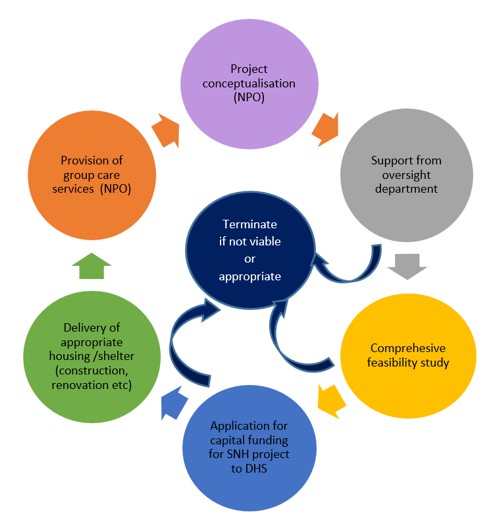
Project preparation includes all the required feasibility work e.g. institutional due diligence, departmental support, land availability, site suitability studies, architectural design, geotechnical studies, foundation design cost estimates, procurement process, construction methodology and risk assessment which means that decisions must be taken as to whether or not a specific project is feasible or not. Most NPOs do not have the funding to appoint professionals (e.g. geotechnical specialists, architects, engineers) and may not have the expertise to effectively brief and manage such professionals. The provision of preparation funding is therefore important in order to appoint a project preparation manager to enable high quality feasibilities and the compilation of proper funding applications.
Click here for the checklist for contents of a SNH project funding application.
PPT has extensive experience in preparing a range of SNH projects including shelters for abused women, shelters for the homeless, foster care homes, shelters for abandoned babies, places of safety, children’s homes, etc. PPT works very closely with a range of key stakeholders in this regard, including grassroots NPOs, departments of Human Settlements, Social Development and Health, municipalities and in some cases other funders (e.g. for furniture and equipment).
PPT assists NPOs with pre-screening of projects /brief pre- feasibility studies to determine if there are any obvious risks and if so, determine if and how it can be mitigated. If the project seems viable, PPT will commit to further assistance. This may include the allocation of bridging funding, where required, to assist with the institutional assessment, the appointment of professionals (e.g. geotechnical specialists, engineers, architects/ draughtsmen, quantity surveyors, conveyancers), project coordination, quality control, the compilation of a comprehensive capital funding application to the Department of Human Settlements (which includes implementation plans, cash flows etc.). PPT will also follow up and respond to departmental enquiries, where applicable.
Effective preparation of SNH projects is required in order to access capital funding from the Department of Human Settlements for SNH projects whether it be acquisitions, renovations, extensions or new builds. SNH projects must be viable and sustainable i.e. that organisations have the necessary skills, capacity and funding to operate and maintain the project and must protect the interests of the beneficiaries, the NPO and the relevant provincial Departments.
Most NPOs do not have the funding to appoint professionals to assist them with the application to the Department of Human Settlements. PPT thus obtained donor funding from USAID (2003 and 2005) and the Nedbank Foundation (2004 and 2007) to establish revolving funds which enabled PPT to assist eligible NPOs with the preparation of project applications. No interest is charged on the bridging finance regardless how long it takes the department to process the application. The funding is provided at no risk to the NPO (for repayment) in case of the project not being approved. The only requirement is that the preparation funding be repaid upon project approval from the funding allocation as per the budget submitted. The revolving fund work very well as illustrated below.
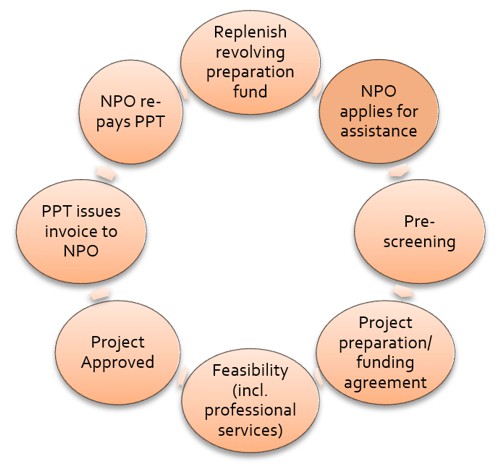
Illustration:
Nedbank Foundation donated R690 000 between 2004 and 2007 towards the revolving fund. With the funding PPT prepared 24 SHN applications for 377 beneficiaries to the value of R21.84 million. R19.5 million was leveraged for 19 projects to establish 30 facilities for 329 beneficiaries. This excludes five applications for 48 orphans and vulnerable children that needed to be withdrawn due to unreasonable delays with the approval of application by the DHS to the value of R2.2 million. Despite preparation costs increased due to inflation and additional requirements e.g. Bill of Quantities during application phase and because some funding cannot be recovered for the applications prepared, the fund is still active and more NPOs will be assisted in future.
PPT recovered most of the preparation funding with the approval of the projects as agreed and was able to replenish the revolving fund in order to assist other NPOs.
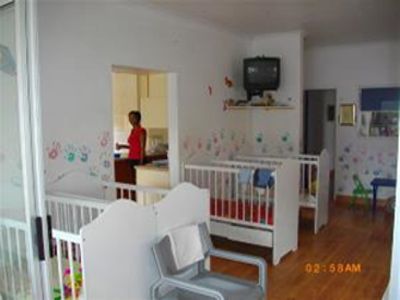
Lelethu shelter for abandoned babies, Port Elizabeth, EC
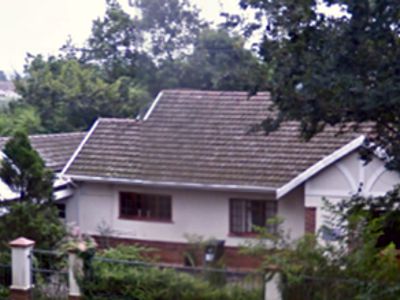
Ester House - Shelter for abused women, Pietermaritzburg, KZN
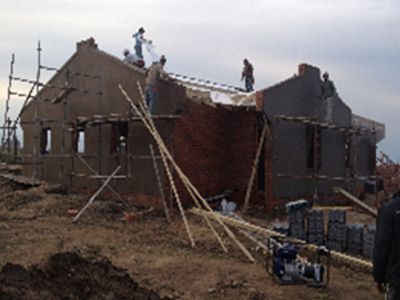
Victory 4 All building 3 homes of children with disabilities, Humansdorp, EC. Urgent private funding had to be found as DHS took too long to process the application
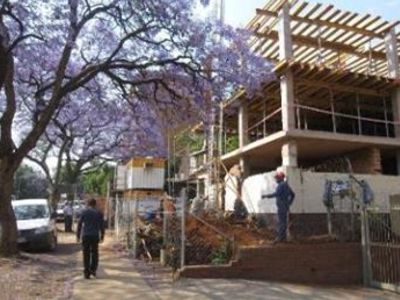
Leyds House - accommodation of girls at risk, Tshwane, Gauteng
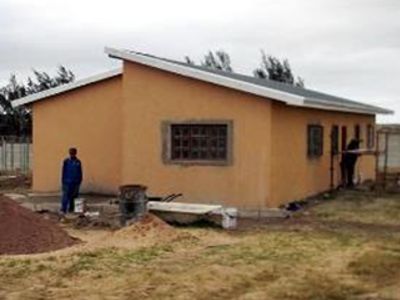
Jehova Jireh foster care home, Alexandria, EC
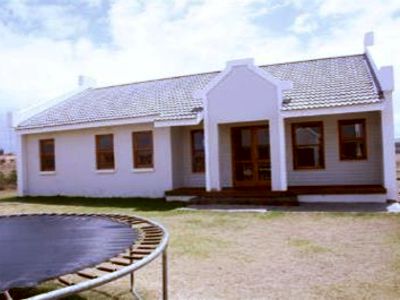
Victory 4 All Foster care home, Jeffrey's Bay, EC.
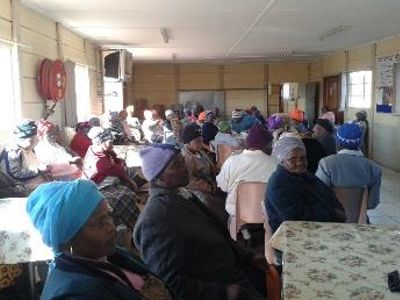
Older persons meeting on possible old age home, Port Elizabeth, EC.
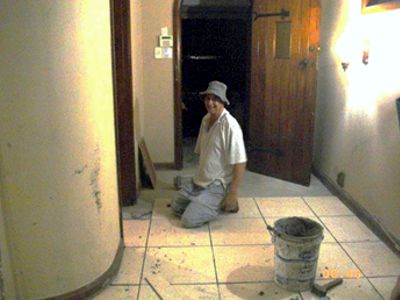
Renovating Living Waters home for abused women, East London, EC.
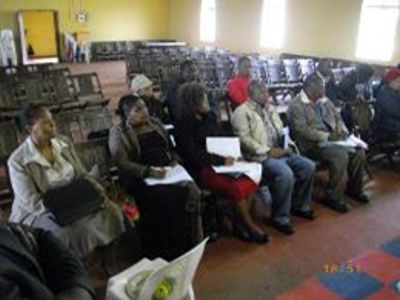
Community leadership meeting on the establishment of 6 foster care homes by the Apostolic Faith Mission(AFM), Lusikisiki, EC.
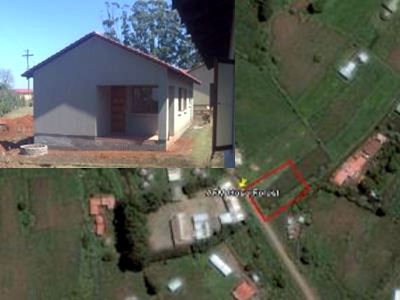
AFM: First of 6 foster care homes in rural Lusikisiki, EC
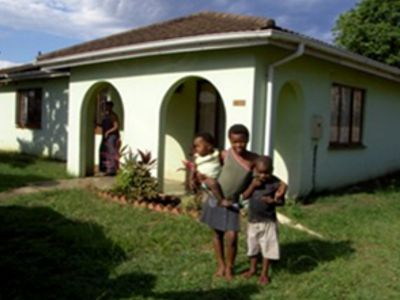
Abethu foster care home, KwaMashu, KZN
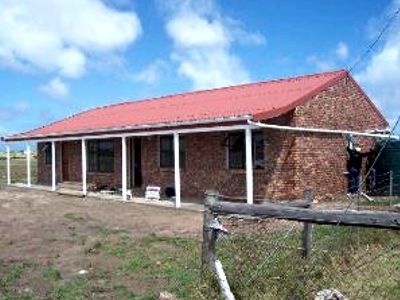
Thokomala foster care home, Marselle, EC
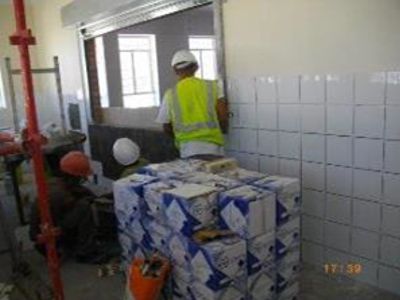
Renovations at MES shelter for the homeless, Port Elizabeth, EC
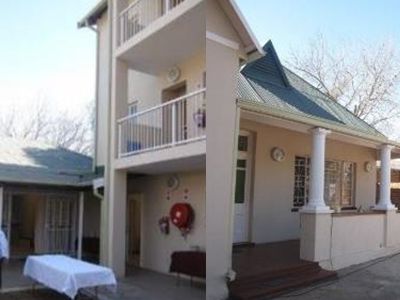
Gilead House - Home for persons with intellectual/ psycho-social disabilities, Tshwane, Gauteng.
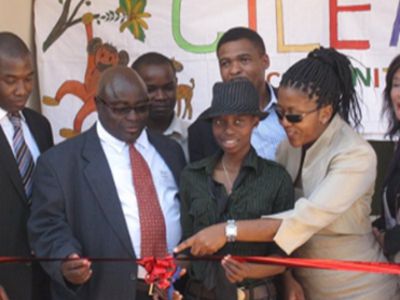
Opening ceremony for Gilead House - home for psycho-social disabled persons, Tshwane, Gauteng
